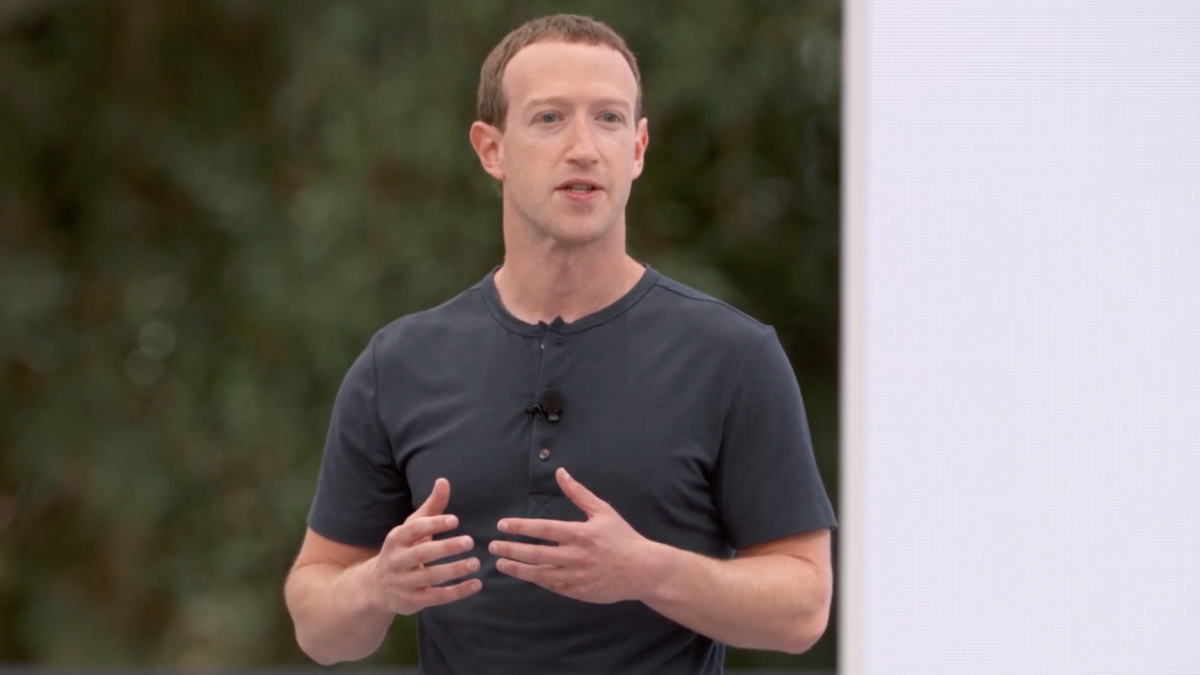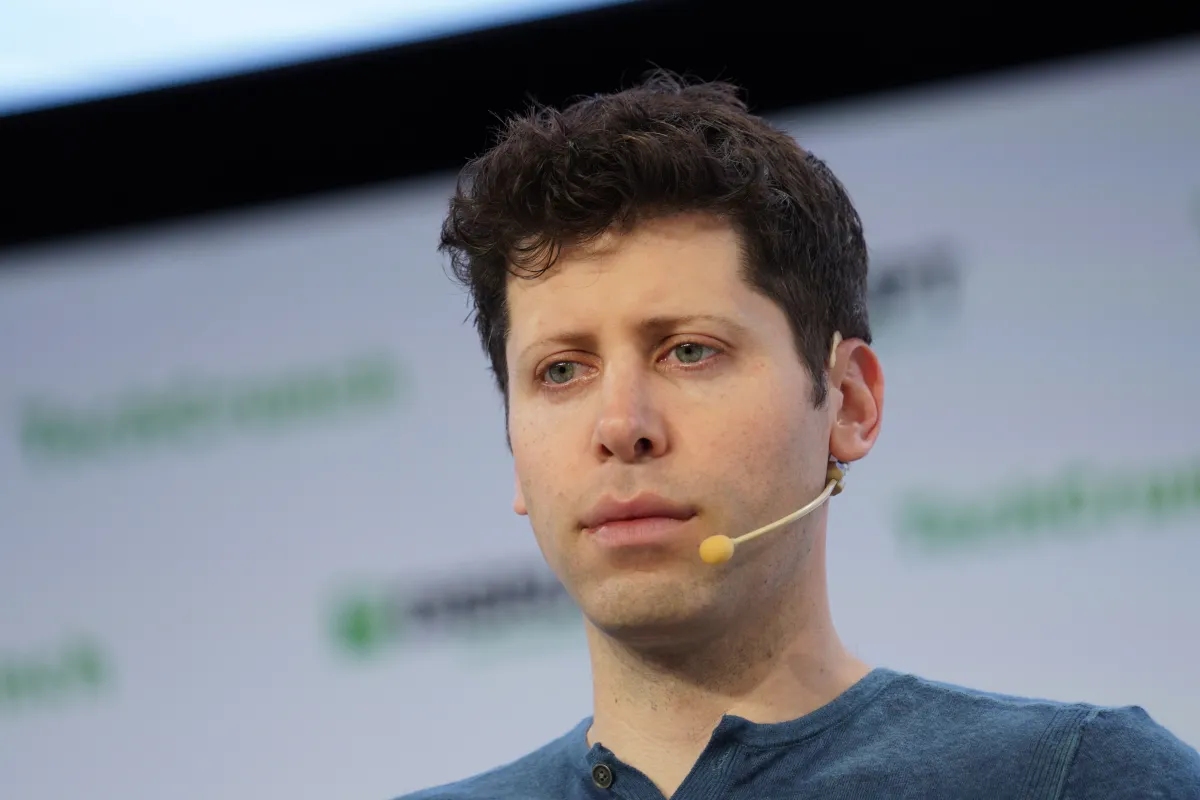Editor of Russia, from Minsk

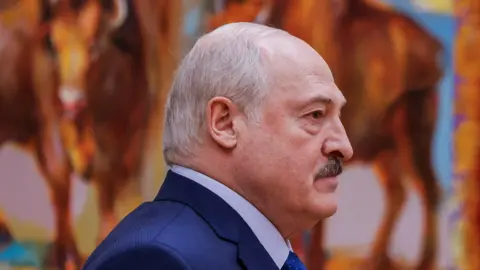 Reuters
ReutersThere are times in history when countries are gripped by election fever.
January 2025 in Belarus is not one of them.
Walk around Minsk and you’ll see large billboards promoting photos of the candidates.
There are few campaigns.
The gray skies and harshness of the Belarusian winter add to a feeling of extreme inactivity.
And inevitable.
The outcome of the 2025 presidential election is not in doubt. Once called “Europe’s last dictator”, Alexander Lukashenko, who ruled Belarus with an iron fist for more than 30 years, will be declared the winner and secure a seventh term in office.
His supporters call it an exercise in “Belarusian democracy.” dispute He dismissed the operation as a “farce.”
Even Mr. Lukashenko himself claims that he lacks interest in the process.
“I’m not following the election campaign. I don’t have time,” the Belarusian leader told workers at the Minsk automobile plant this week.
The workers gave him a gift: a wood-chopping axe.
“I will try it before the election,” Mr. Lukashenko promised, to quiet applause.

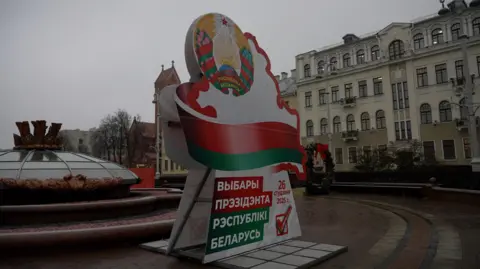
Four and a half years ago, at a different institution, the Belarusian leader received a much cooler reception.
One week after the 2020 presidential elections, Alexander Lukashenko visited the Minsk Tractor Wheels Plant. The leaked video showed him being reinforced by workers. They shouted, “Go away! Go away!”
In 2020, the official election result – 80% for Mr Lukashenko – sparked outrage and massive protests across the country. Belarusians poured into the streets to accuse their leader of stealing their votes and the election.
In the brutal police crackdown that followed, thousands of anti-government protesters and critics were arrested. Eventually, a wave of repression snuffed out the protests, and with help from Russia, Mr. Lukashenko clung to power.
The UK, EU and US refuse to recognize him as the legitimate president of Belarus.
Alexander Lukashenko’s most powerful opponent (and potential rivals) is either in prison or forced into exile.
That’s why the European Parliament this week passed a resolution calling on the EU to reject the upcoming presidential elections as a “sham” and suggesting that the election campaign is taking place “in an environment of extreme repression that fails to meet even the minimum standards for democratic elections.”
I remember Interviewing Alexander Lukashenko last OctoberOn the day the date of the presidential elections was announced.
“How can these elections be free and democratic if the opposition leaders are in prison or abroad?” I asked.
“Do you actually know who the opposition leaders are?” Mr. Lukashenko is back.
“The opposition is a group of people who should serve the interests, at least, of a small number of people in the country. Where are these leaders you are talking about? Wake up!”
Alexander Lukashenko is not the only candidate. There are four more. But they seem more like spoilers, than serious competitors.

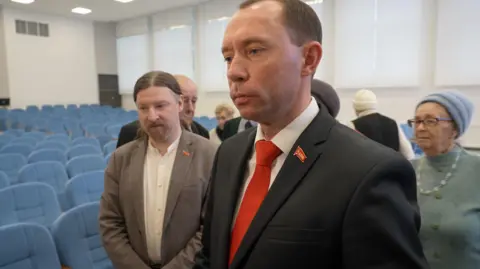
I drive four hours from Minsk to meet one of them. Sergei Serankov is the leader of the Communist Party of Belarus. In the town of Vitebsk, I’m sitting at one of his campaign events. In a large hall, Mr. Serankov addresses a small audience, surrounded by his party’s symbol, the hammer and sickle.
His campaign slogan is unusual to say the least: “Not instead of, but with Lukashenko!”
He is a presidential candidate who openly supports his opponent.
“There is no alternative to Alexander Lukashenko as the leader of our country,” Serankov tells me. “So, we are participating in the elections with the president’s team.”
“Why do you think there is no alternative?” I ask.
“Because Lukashenko is a man of the people, a man of the soil, he has done everything to make sure that they do not have the kind of chaos that they have in Ukraine.”
“You are fighting for power yourself, but you support another candidate. This is unusual,” I suggest.
“I am sure that Alexander Lukashenko will win the stunning victory. But even if he wins and I do not, the Communists will be the winners,” answers Mr. Serankov.
“The main communist in our country is our head of state. Lukashenko still has his old membership card from the days of the Soviet Communist Party.”

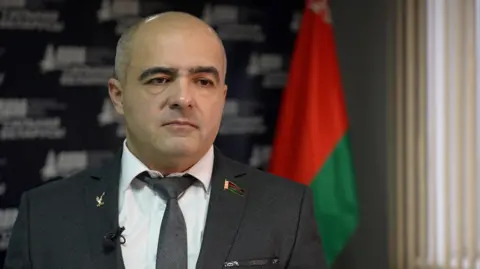
Also on the ballot is Oleg Gaidoevich, leader of the right-wing Liberal Democratic Party of Belarus. He, too, is not running to win.
“If anyone dares to suggest the election results are unknown, they are lying,” says Mr. Jadojevic.
“It is clear that Lukashenko will win. He has a tremendous rating… We go into battle to strengthen our positions and prepare for the next elections.”
Mr. Lukashenko’s critics reject the assertion that his popularity is “huge.” But there is no doubt that he has support.

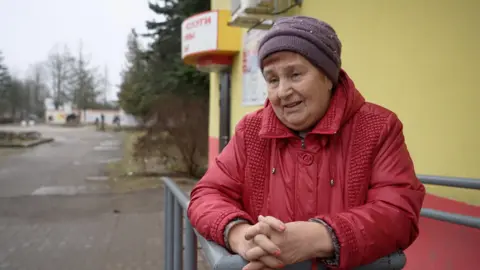
On the edge of Vitebsk is the small town of Oktyabrskaya. Talking to people there he discovered concern that a change in leader might spark instability.
“I want a stable salary, stability in the country,” Welder Sergei told me. “Other candidates make promises, but they may not keep them. I want to keep what I have.”
“The situation today is very tense,” says Zinaida. “There may be other people who deserve power. But by the time the younger leader gets his feet under the table and makes those important connections with other countries, and with his own people that will take a long time.
“God forbid we end up like Ukraine.”
In Belarus today, there is a fear of instability, a fear of the unknown, and a fear of the government. All the work is in favor of Alexander Lukashenko.
https://ichef.bbci.co.uk/news/1024/branded_news/7345/live/499e4770-da85-11ef-bf21-81c5146ef2ab.jpg
2025-01-25 01:37:00

